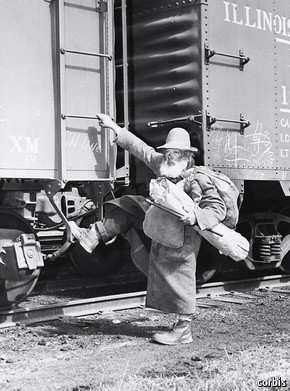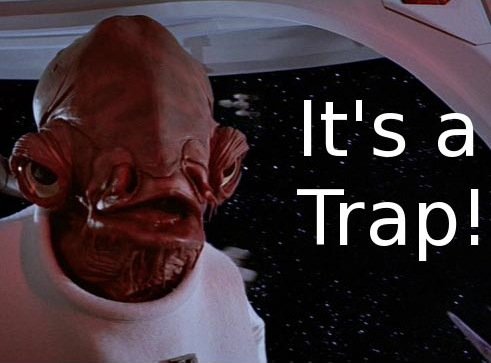In fifth grade, I wrote a story about a boy who travels into a post-apocalyptic future to do battle with ancient Zoroastrian gods.
Wait, I’m sorry, now Hollywood’s on the line. “What? Oh, dear, no, I’m holding out for forty million. Thanks, but no thanks!”
ANYWAY, the first scene features said protagoboy in his middle school. (Having never yet seen the inside of a middle school at this point, I imagined they were places built mainly out of lockers.) Protagoboy sidles slyly over to a girl he fancies, found in the act of getting some books out of her locker. He tries flirting with her and she blows a bubble and slams her locker door and walks away, which are the main things girls did in the 80’s. Then protagoboy leans against some lockers and sighs heavily, Billy Joel’s “Tell Her About It” probably blasting in the background. This is before our young hero is summoned to the future to do battle with Ahriman, so he still lacks self-confidence.
I made the mistake of allowing my family to read this story, because I was eleven, and I actually still had some self-confidence.
I came home from school to find my grandmother waiting for me at the door.
“SO WHO’S THE GIRL?” she asked.
“I-I-I,” I stammered, and then ran away, and was never seen from again.

Not really, but that was the last time I ever voluntarily shared my writing with my family.
I think the most common (and irritating) misconception I encounter when talking about writing is the idea that characters are based on specific people from the author’s life, and that your protagonist is really just a wish-fulfillment version of yourself. Now, this latter part was at least sort of true for me when I was eleven, and also when I was twelve and wrote my next story, about a boy who has to stop an alien invasion. (The aliens, I feel the world should finally know, were – and I swear this is true – called kraliens.)
Now, I can’t speak for every writer. I can only barely speak for myself. I think there are writers who do exactly that, and if I may generalize (I may), these writers tend to be of the barely-concealed memoirist variety. The literariest among us. The people who write, more than anything else, because they have a burning desire to explore their own lives through what we generously allow them to call fiction.
But there doesn’t typically seem to be a lot of overlap between these type of writers and genre writers. More often than not, we fantasists start from an idea-driven place. We start by devising new ways to blow up planets or imagining new types of pointy-eared people (how about krelves? Has anyone called them krelves yet??).
We start from the epic and narrow it down to the human. And I suspect that a lot of new genre writers, unsure of where these “character” things are supposed to come from, assume the best way to find them is by basing them on real people from their lives.
I would humbly suggest that this is always, always a terrible idea.
Well said, Admiral.
A few years ago, I wrote a screenplay. It was the first totally original writing I’d done in twenty years, and, unsure of how to start, I followed the “base characters on people you know” method. It did nothing but slow me down. I ultimately found it impossible to imbue real agency in people that actually exist in real life, people who definitely aren’t even a little bit me. It just drove me into my head, forcing me to imagine what so-and-so would say or do in every situation. I stopped thinking intuitively and it just became an incredibly tedious exercise. I was actually writing down funny things my funny friends said so I could try jamming them into the story, entirely out of their original context. If this sounds like a crutch, that’s because it was – and a really problematic one, because, and I can’t emphasize this point enough: I’m not my funny friends.
So when I set out to write BACK ROADS KINGDOM, I already knew from my previous failed experiment that there was no way I was going to be able to capture the exact rhythms of my friends’ speech and behavior. Instead, I decided to think of it as though I were casting a play.
As a director, you have the great joy of casting your funny friends in roles that have already been written. Most of the time, these roles were written by people, like say William Shakespeare, who don’t even know your FFs…but you just know your FFs would be amazing in those roles and would bring so much new life to it and you just can’t wait to see them say those words.
Now, if you’re writing a play or a screenplay, you certainly might write roles with your actor friends in mind, intending to cast them, and I’ve definitely done this too: but this is not the same thing as writing characters based on those people. It may seem like a superficial difference, but it’s not. Instead of trying to imagine your actual friends/family members/medical providers/ former medical providers in imaginary situations, with only their names changed to protect the innocent, you’re imagining wonderful fictional characters that your friends would be so, so great at playing. So with BACK ROADS KINGDOM, I cast my brother Nicky as Sly. Is Sly Nicky? Absolutely not. Sly is an amoral thief with a heart, at best, of bronze. He’s a bit of Huck Finn, Jack Sparrow, the Artful Dodger, Brer Fox, and a thousand other fictional and folkloric characters. And he’s certainly got a lot of my wife Leah in him, since she originally created the character for one of our tabletop RPG campaigns. But in my novel, Nicky plays Sly. And, miraculously, every once in a while during the writing process, the Nicky who lives in my imagination started improvising dialogue. Not all of it…just enough to imbue this archetype with a real, unique life. This is the beauty of getting out of your head: I wasn’t asking the-Nicky-in-my-head to improvise dialogue, he just did it, because HE wanted to help ME.
Later in the book, I employed the same technique with the character of Dingo, who is played rather expertly by my brother Bill. Dingo isn’t Bill, but over the course of a thousand revisions, he sure started to sound like him…and look like him. My protagonist, Penny, is played by a rotating company of my friends – sometimes one actress will take over for another in mid-scene.
But here’s the key: as I write these characters, I’m not beholden to any actual people. I’m not worried about “getting them right.” My life’s colorful cast of characters are in service to my book’s colorful cast of characters, and not the other way around.
Does this make any sense? Is it just a semantic trick I’m playing on my brain? Let me know!
Next time: when to send the writer out of the room and let the director take over!



I love hearing about your childhood writing – mine was much the same way. I did a lot of self-insert up until I was 14 or so, and I wrote my second screenplay. That protagonist was a guy much unlike me, although his love interest was a self-insert 😛 I also find a lot of exterior works woven into my childhood writing, like Star Wars, X-Men, etc.
Now, I tend to “cast” famous faces and obscure working actors as my characters. I form what I want the character to be, then “cast” them with Dawn Olvieri or Pascal Langdale or someone of that nature to “play” them in my head. It’s a lot easier than casting them as people I actually know, because I have no clue how these actors behave in real life. I just know what performances they’re capable of, and if they’d be a good fit.
I really love to find other writers who are cinematic, because I feel like most writers don’t “get” how we think very well, or they think our writing isn’t as skilled/legitimate for some reason. *sigh*
LikeLiked by 1 person
Yes! Casting famous actors! That’s a great way to do it too!
I do think of myself as a cinematic writer, and I freely admit that movies and TV shows are where most of my biggest influences come from. I’ve encountered the same prejudice you’re describing in theater circles too, where you just aren’t supposed to talk about movie influences. But as writers, we’re all working toward the same place, just getting there differently. We maybe have more of an “outside-in” approach, i.e. we see and hear the scenes play out before we flesh out the characters’ subjective experience of them, if that makes sense.
LikeLike
yup I love this
LikeLiked by 1 person
Yup, I love this.
LikeLiked by 1 person
I love that organic writing style. Bits and pieces from here and there creating something and someone new from all the best and worst of the world.
LikeLike
Interesting that you use people you know very well in real life as blueprints for fictional characters. I like that you distinguished writing fictional characters based off of people in real life vs. writing about how these people would interpret the fictional characters. Writing about people I know very well in real life is difficult because their mannerisms, appearances, and proclivities are so ingrained. Perhaps this is why I know a bunch of people who are acquaintances yet have only a handful of people I know extremely well. I take the traits that stand out, and write a whole character around them.
I think most writer’s block issues can be solved by the simple act of reframing the problem. You’ve done so here by wearing your director’s hat and casting characters instead of moulding them out of clay. Gives me something to think about!
LikeLiked by 1 person
Yeah, it’s all just hacks to figure out the fastest and easiest way to start tackling a daunting project. Once you get into the flow of it, it completely stops mattering, and the characters just become conmpletely unique beings.
LikeLiked by 1 person